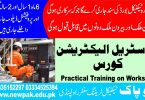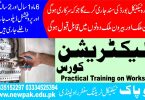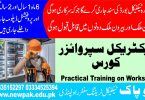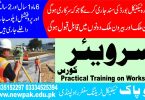
Motorcycle Mechanic Course In Rawalpindi Islamabad
The motorcycle mechanic course delivers a comprehensive foundation in motorcycle systems, maintenance, and repair. Students begin with the fundamentals, motorcycle types, components, and workshop safety, and advance into key areas like engine theory, electrical systems, and diagnostics. With immersive motor cycle mechanic training, learners gain practical experience in carburetor tuning, suspension, and brake adjustments. Emphasizing troubleshooting and industry safety standards, the course prepares graduates for real-world roles in motorcycle repair course environments.
Course Overview
Designed for aspiring professionals, a specialized bike mechanic school offers this course, which develops essential hands-on skills. The six-month program introduces engine systems, electrical components, and routine servicing, while the one-year curriculum expands into advanced diagnostics, engine overhauls, and suspension tuning. With training modeled after top motorcycle technical institute programs, students learn to meet industry safety standards and build a solid path to long-term career advancement. Ideal for those seeking motorcycle mechanic certification, it opens doors to employment in leading workshops and service centers.
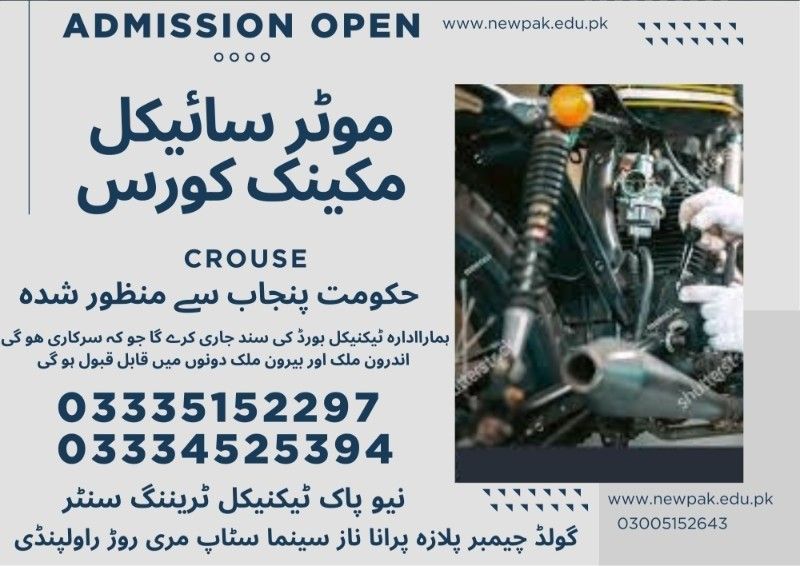
Course Duration
06 | Months
- Introduction to Motorcycle Types
- Motorcycle Components and Systems
- Workshop Safety and Best Practices
- Introduction to Tools and Equipment
- Specialized Motorcycle Tools
- Workshop Setup and Guidelines
- Two-Stroke and Four-Stroke Engines
- Engine Operation and Theory
- Engine Components and Functions
- Carburetion and Fuel Injection Systems
- Ignition Systems and Electrical Components
- Fuel Delivery and Exhaust Systems
- Carburetor Tuning and Troubleshooting
- Basic Electrical Systems
- Wiring Diagrams and Battery Maintenance
- Charging Systems and Regulators
- Lighting and Ignition Systems
- Clutch and Transmission Systems
- Drive Belts, Chains, and Gear Shifting
- Suspension and Steering Adjustments
- Brake Systems and Troubleshooting
- Tire Changing and Repair
- Routine Maintenance and Inspection
01 | Year
- Introduction to Motorcycle Types
- Motorcycle Components and Systems
- Workshop Safety and Best Practices
- Introduction to Tools and Equipment
- Specialized Motorcycle Tools
- Workshop Setup and Guidelines
- Two-Stroke and Four-Stroke Engines
- Engine Operation and Theory
- Engine Components and Functions
- Carburetion and Fuel Injection Systems
- Ignition Systems and Electrical Components
- Fuel Delivery and Exhaust Systems
- Carburetor Tuning and Troubleshooting
- Basic Electrical Systems
- Wiring Diagrams and Battery Maintenance
- Charging Systems and Regulators
- Lighting and Ignition Systems
- Clutch and Transmission Systems
- Drive Belts, Chains, and Gear Shifting
- Suspension and Steering Adjustments
- Brake Systems and Troubleshooting
- Tire Changing and Repair
- Routine Maintenance and Inspection
- Advanced Troubleshooting Techniques
- Diagnostic Tools and Fault Interpretation
- In-Depth Electrical System Diagnosis
- Advanced Engine Repair Techniques
- Exhaust System Modifications
- Transmission Overhauling
- Suspension Tuning and Customization
- Steering Alignment and Optimization
- Brake Bleeding and Performance Tuning
- Wheel Balancing and Hub Reconditioning
- Maintenance Planning and Performance Upgrades
- Safety Standards and Environmental Compliance
- Final Practical Workshop Assessment
- Certification of Motorcycle Mechanic Training Program
Course Outline (6 Months)
Motorcycle Basics & Workshop Safety
Month 1
- Introduction to Motorcycle Types
- Motorcycle Components and Systems
- Workshop Safety and Best Practices
- Introduction to Tools and Equipment
Tools and Engine Fundamentals
Month 2
- Specialized Motorcycle Tools
- Workshop Setup and Guidelines
- Two-Stroke and Four-Stroke Engine Fundamentals
- Engine Operation and Theory
Engine Components & Fuel System Basics
Month 3
- Engine Components: Pistons, Cylinders, Crankshafts, Camshafts
- Carburetion and Fuel Injection Systems
- Ignition Systems and Electrical Components
Fuel, Exhaust, and Electrical Components
Month 4
- Fuel Delivery and Exhaust Systems
- Carburetor Tuning and Troubleshooting
- Basic Electrical Systems
- Wiring Diagrams and Battery Maintenance
Advanced Electrical & Transmission Systems
Month 5
- Charging Systems and Regulators
- Lighting and Ignition Systems
- Clutch Systems and Transmission Operation
- Drive Belts, Chains, and Gear Shifting
Suspension, Brakes, Tires And Maintenance
Month 6
- Suspension Systems and Steering Adjustments
- Brake System Maintenance and Troubleshooting
- Tire Types, Changing, and Repair
- Routine Maintenance and Inspection Procedures
Course Outline (1-Year)
Months 1–6: Fundamental Motorcycle Mechanic Course in Rawalpindi Islamabad
(Same course content as the 6-month program but with more detail, tools, software technologies, and practicals.)
Troubleshooting & Diagnostics
Month 7
- Advanced Troubleshooting Techniques
- Diagnostic Tools and Fault Code Interpretation
- Real-Time Problem Identification
Advanced Engine & Electrical Repairs
Month 8
- In-Depth Electrical System Diagnosis
- Advanced Engine Repair Techniques
- Exhaust System Modifications
Transmission and Suspension Tuning
Month 9
- Transmission Overhauling
- Suspension Tuning and Customization
- Steering Alignment and Optimization
Brake Systems & Wheel Maintenance Guide
Month 10
- Hydraulic and Mechanical Brake System Repair
- Wheel Balancing and Hub Reconditioning
- Brake Bleeding and Performance Tuning
Performance Tuning & Maintenance Planning
Month 11
- Advanced Maintenance Planning
- Filter Upgrades and Lubrication Systems
- Motorcycle Performance Enhancements
Safety Compliance & Final Workshop Review
Month 12
- Industry Safety Standards and Environmental Compliance
- Occupational Health and Safety Practices
- Final Practical Assessment and Workshop Simulation
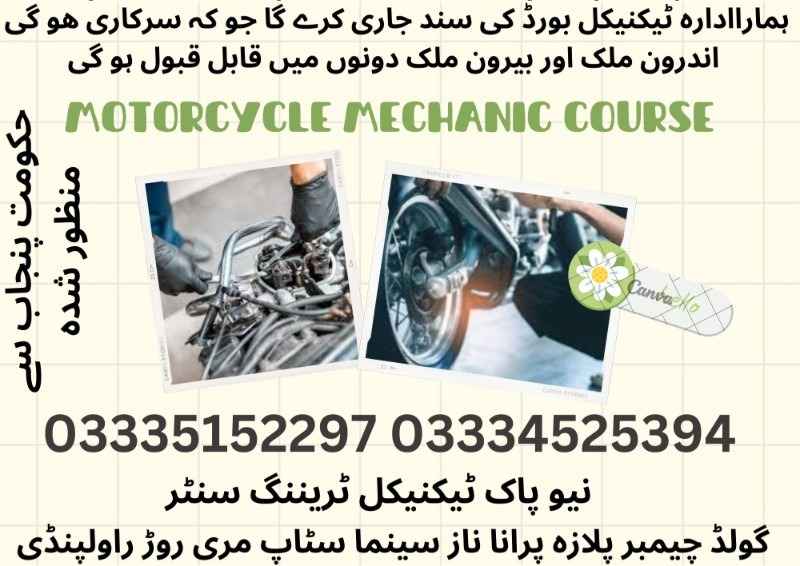
Career Opportunities
- Motorcycle Mechanic
- Motorcycle Technician
- Workshop Supervisor
- Motorcycle Service Advisor
- Performance Tuning Specialist
- Parts and Service Manager
- Motorcycle Workshop Owner
- Technical Instructor
Conclusion
Graduates of the Motorcycle Mechanic Course in Rawalpindi Islamabad are equipped to handle a wide range of maintenance and bike repairing tasks confidently. They develop the skills and technical knowledge required for success in the fast-paced motorcycle service industry through structured motorcycle mechanic classes. Whether pursuing immediate employment or continued specialization, this motorbike mechanic course provides a strong launchpad for a rewarding mechanical career.

